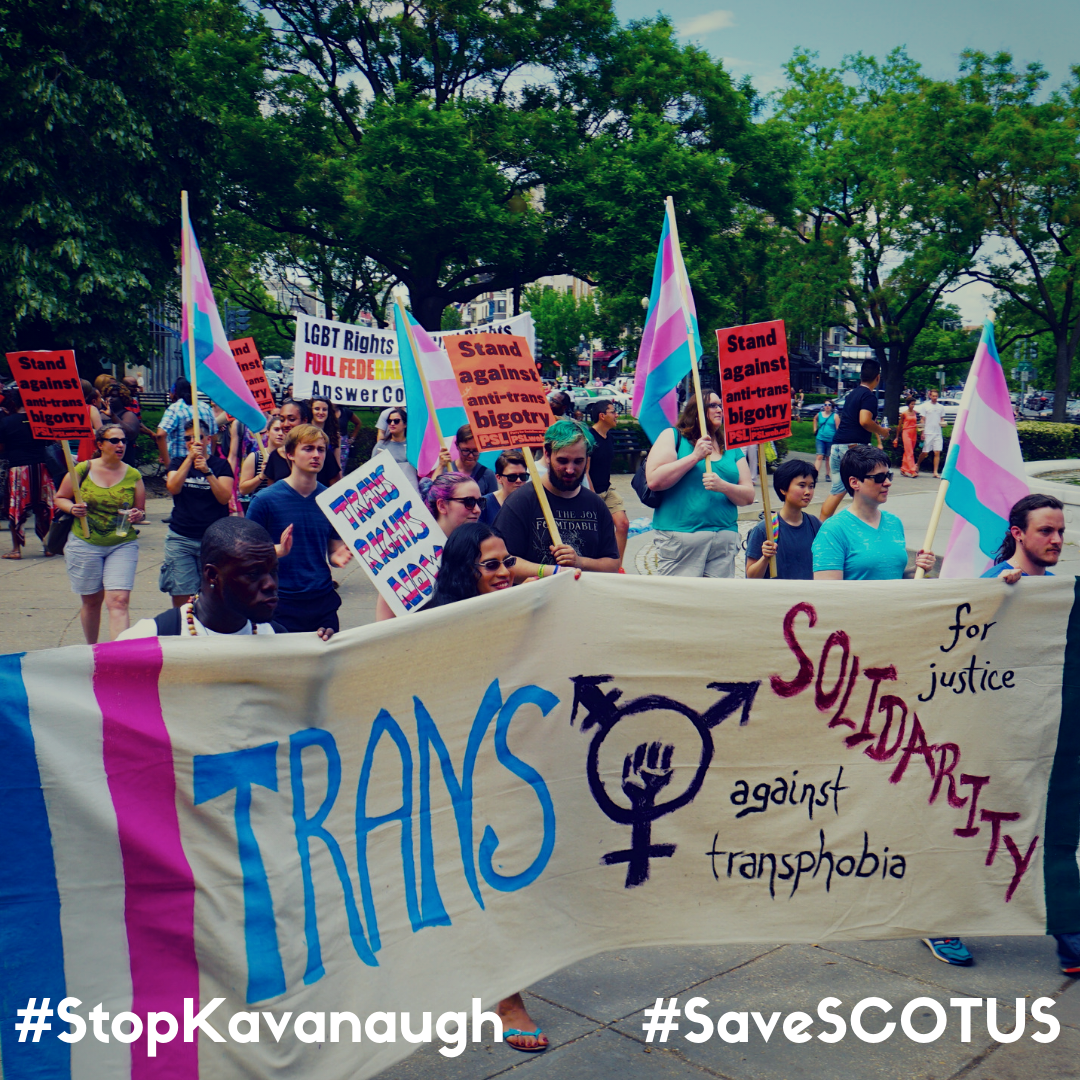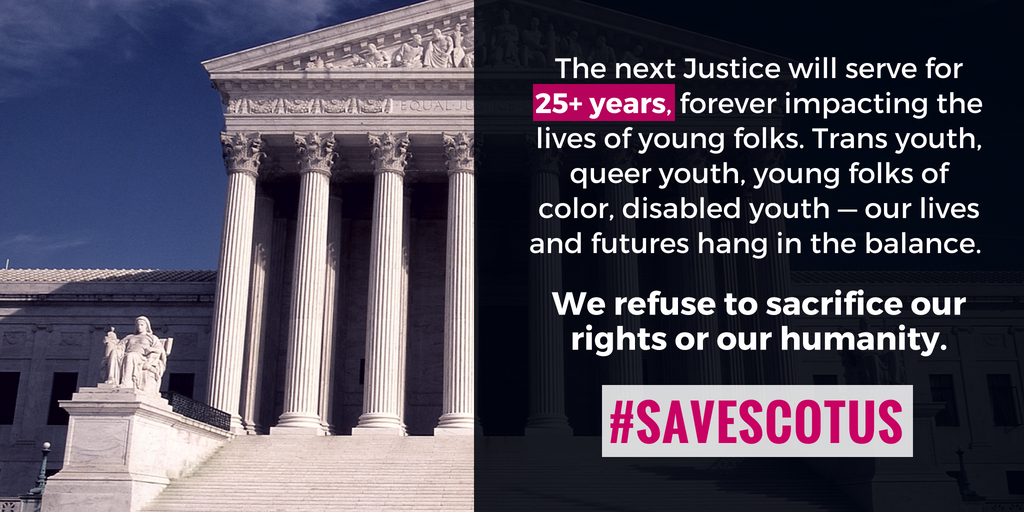Bloomberg Law recently reported that 16 states want the Supreme Court to limit workplace rights for transgender workers. These states want companies to be able to fire or not hire workers based on gender identity and want the Supreme Court to rule that doing so is legal and does not violate federal workplace discrimination law.
In Michigan, Aimee Stephens was fired after telling her bosses she was transitioning. The ACLU took on her case and the court ruled in her favor, saying that her firing constituted sex-based discrimination. This group of 16 states now wants to overturn that decision and solidify the decision that the law does not cover gender identity and sexual orientation. According to the Bloomberg Law article, these states claim that “Congress didn’t intend the ban on sex discrimination in Title VII of the 1964 Civil Rights Act to cover bias against lesbian, gay, bisexual, or transgender employees.”

 This work is licensed under a Creative Commons Attribution-ShareAlike 4.0 International License.
This work is licensed under a Creative Commons Attribution-ShareAlike 4.0 International License.Title VII prohibits sex discrimination, but in actuality, these protections mostly apply to cisgender workers. There is currently no federal law protecting the rights of employees from discrimination based on sexual orientation or gender identity in the United States. 28 states do not explicitly protect lesbian, gay, or bisexual workers and 30 do not protect transgender workers. Last summer, I worked a job that did not provide explicit protections for gender identity and sexual orientation in my contract. The horrific reality is that, unless explicitly stated, there usually aren’t any protections for LGBTQ+ workers. The ruling of the appeals court in favor of Aimee Stephens is a rare case of a trans worker receiving support in the workplace.
Workplace discrimination is a problem many LGBTQ+ people face, but trans people in particular are more likely to be fired or not hired because of their gender identity. Without federal protection, this blatant discrimination is completely legal. Further, workplace discrimination can lead to violence.
Employment security is one of few ways to limit the violence trans people face. Two trans women, Dejanay Stanton and Vontashia Bell, were killed on August 30, and another, Shantee Tucker, on September 5 of this year. One reason that there is such a high rate of violence against trans people is that, without explicit workplace protections, trans folk are more likely to lose their jobs, often leading to poverty and homelessness. The past few years have been record-hitting in terms of the violence against trans folks, and this year is set up to be even worse. Protections in employment and housing are protections from violence as well, and give trans people a better chance at living safely.

The Supreme Court is supposed to decide within the next few months whether or not it will hear the 16 states’ case, which would be a landmark case for transgender workers. A SCOTUS ruling could either set precedent nationally that it is illegal to discriminate based on gender identity, or could set precedent allowing further discrimination, leading to a continued and even bigger risk for homelessness, unemployment, and violence for trans workers.
We know that the vote to confirm Brett Kavanaugh to the Supreme Court is important for countless reasons, including preserving Roe and abortion access across the country. But with a possibility of this case coming before SCOTUS – a case that has the potential to be a landmark case for workers’ and trans rights – this confirmation becomes even more important. A decision made by the Court on trans rights could mean life or death for the transgender community, and conservative nominee Brett Kavanaugh is not the person to guarantee protections for LGBTQ+ people.
[spacer height=”10px”]
Wondering what you can do to #StopKavanaugh and #SaveSCOTUS?
Here’s 5 actions you can take right now to protect the Supreme Court.
[spacer height=”10px”]
The featured image for this Feminist Wins blog post is a derivative; original photo by Ted Eytan / Creative Commons.  This work is licensed under a Creative Commons Attribution-ShareAlike 4.0 International License.
This work is licensed under a Creative Commons Attribution-ShareAlike 4.0 International License.

Elliot Draznin is an amazing student leader on UC’s campus. They have on several occasions displayed characteristics of civic engagement and social responsibility. Elliot has demonstrated these leadership qualities by single-handedly creating a trans-inclusive fashion show for the DAAP studies program during LGBTQ History Month and has hosted workshops on mindfulness in the LGBTQ Center with their peers. Because of Elliot’s consistent leadership and service to the queer community, they were also named the 2017 Parents and Friends of Lesbians and Gays (P-FLAG) Award recipient for the Greater Cincinnati Chapter. Elliot, please continue publishing! This is an amazing piece and we are SO delighted to have you part of our Pride Ambassador program. YOU ROCK!